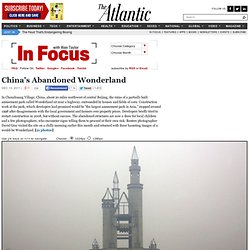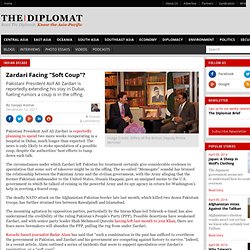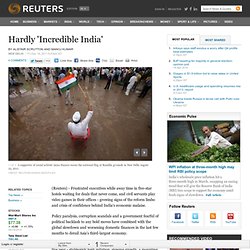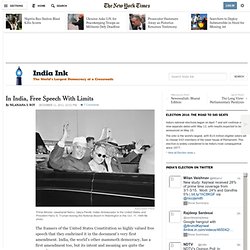

China's Abandoned Wonderland - Alan Taylor - In Focus. In Chenzhuang Village, China, about 20 miles northwest of central Beijing, the ruins of a partially built amusement park called Wonderland sit near a highway, surrounded by houses and fields of corn.

Construction work at the park, which developers had promised would be "the largest amusement park in Asia," stopped around 1998 after disagreements with the local government and farmers over property prices. Developers briefly tried to restart construction in 2008, but without success. The abandoned structures are now a draw for local children and a few photographers, who encounter signs telling them to proceed at their own risk. Reuters photographer David Gray visited the site on a chilly morning earlier this month and returned with these haunting images of a would-be Wonderland. [21 photos] Use j/k keys or ←/→ to navigate Choose: Footsteps in fresh snow are seen across a walkway leading to the entrance of Wonderland, a derelict amusement park northwest of Beijing, on December 5, 2011. Realpolitik and the Myanmar Spring - By Bertil Lintner. Secretary of State Hillary Clinton is in Myanmar, on a trip that is being hailed as a stunning breakthrough in bilateral relations and a sign that the Southeast Asian pariah state may finally be ready to rejoin the international community after two decades of isolation.

It is a victory, analysts say, for the long-suffering forces of good and democracy over a brutal and self-serving military junta. But the truth is far more complicated. According to the conventional wisdom in the Western media, Myanmar's Nov. 2010 elections may have been rigged and flawed, but nevertheless led to unprecedented policy changes and new initiatives. The new president, Thein Sein, has even been dubbed "Myanmar's Gorbachev" for his seemingly daring moves toward openness and respect for (at least some) democratic values. He has held talks with pro-democracy icon Aung San Suu Kyi, political prisoners have been released, and censorship of the media has been relaxed. The political reality is far more convoluted. The American Behind India’s 9/11—And How U.S. Botched Chances to Stop Him. Pictured left: David Coleman Headley, born Daood Gilani.

Right: Sajid Mir, the Lashkar-i-Taiba chief in charge of foreign recruits. Background: Fire and smoke gush out of the Taj Mahal Palace Hotel during the 2008 Mumbai attacks. (Photo by Indranil Mukherjee/AFP/Getty Images) During a meeting overseas last summer, a senior U.S. official and Gen. Ashfaq Parvez Kayani, the chief of Pakistan’s armed forces, discussed a threat that has strained the troubled U.S. The senior U.S. official expressed concern that Zaki-ur-Rehman Lakhvi, a terrorist chief arrested for the brutal attacks in India, was still directing Lashkar operations while in custody, according to a U.S. government memo viewed by ProPublica.
The meeting was emblematic of the lack of progress three years after Lashkar and the ISI allegedly teamed up to kill 166 people in Mumbai, the most sophisticated and spectacular terror strike since the September 11 attacks. But the trial shed little light on Headley’s past as a U.S. Zardari Facing “Soft Coup”? Pakistani President Asif Ali Zardari is reportedly extending his stay in Dubai, fueling rumors a coup is in the offing.

Pakistani President Asif Ali Zardari is reportedly planning to spend two more weeks recuperating in a hospital in Dubai, much longer than expected. The news is only likely to stoke speculation of a possible coup, despite the authorities’ best efforts to tamp down such talk. The circumstances under which Zardari left Pakistan for treatment certainly give considerable credence to speculation that some sort of takeover might be in the offing. Hardly 'Incredible India' NEW DELHI (Reuters) - Frustrated executives while away time in five-star hotels waiting for deals that never come, and civil servants play video games in their offices - growing signs of the reform limbo and crisis of confidence behind India's economic malaise.

Policy paralysis, corruption scandals and a government fearful of political backlash to any bold moves have combined with the global slowdown and worsening domestic finances in the last few months to derail Asia's third-largest economy. India now faces the worst-case scenario that was touted earlier this year - stubbornly high inflation, slowing growth, a mounting fiscal deficit, a rupee that risks freefall -- and both policymakers and the Reserve Bank of India (RBI) have few levers to fix it.
For years, Indian entrepreneurs have boasted they can do business despite the government - adeptly working around potholed roads, clogged ports and reams of regulatory hurdles. The banking sector is now under strain from bad loans. In India, Free Speech With Limits. The framers of the United States Constitution so highly valued free speech that they enshrined it in the document’s very first amendment.

India, the world’s other mammoth democracy, has a first amendment too, but its intent and meaning are quite the opposite.